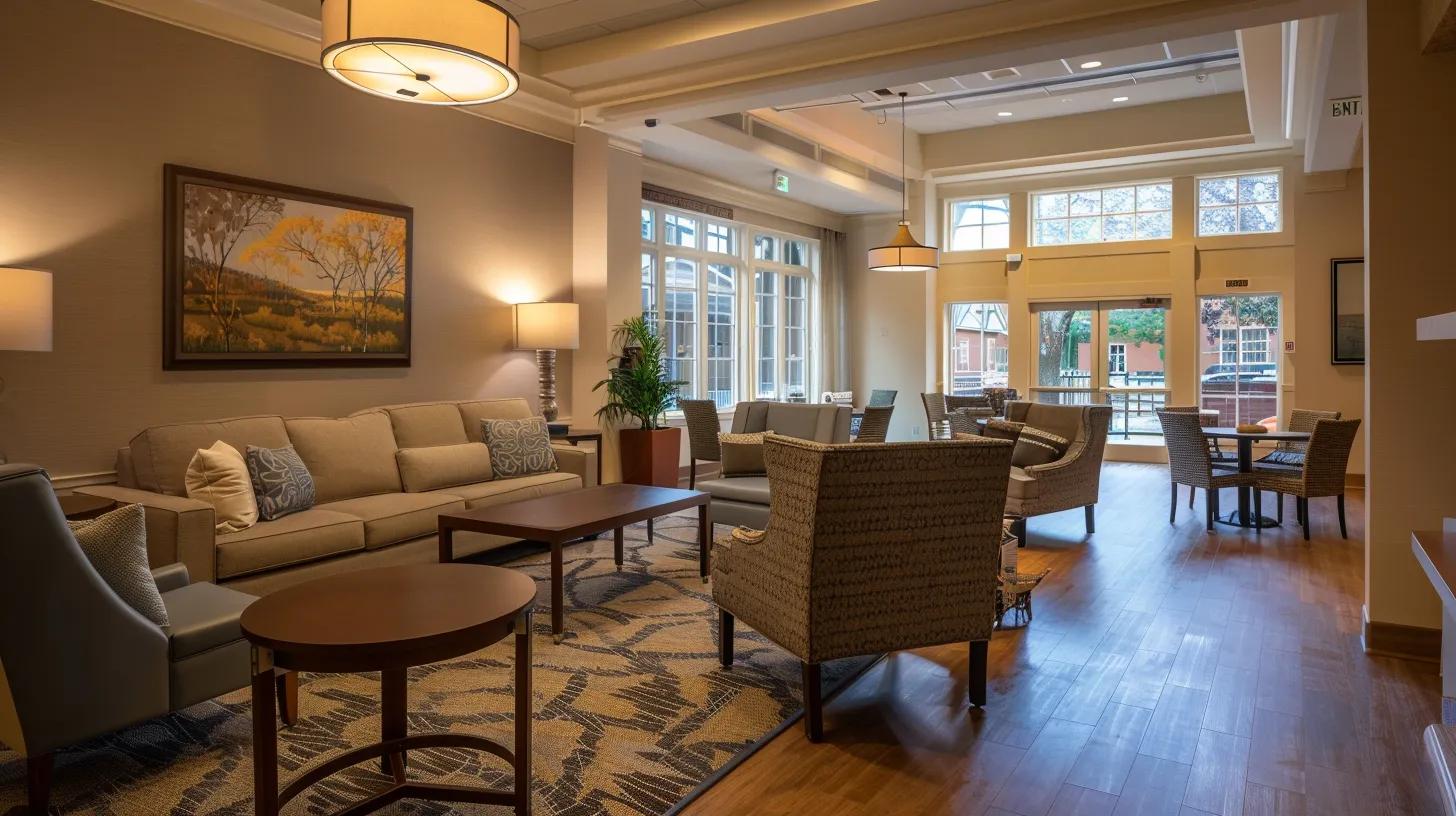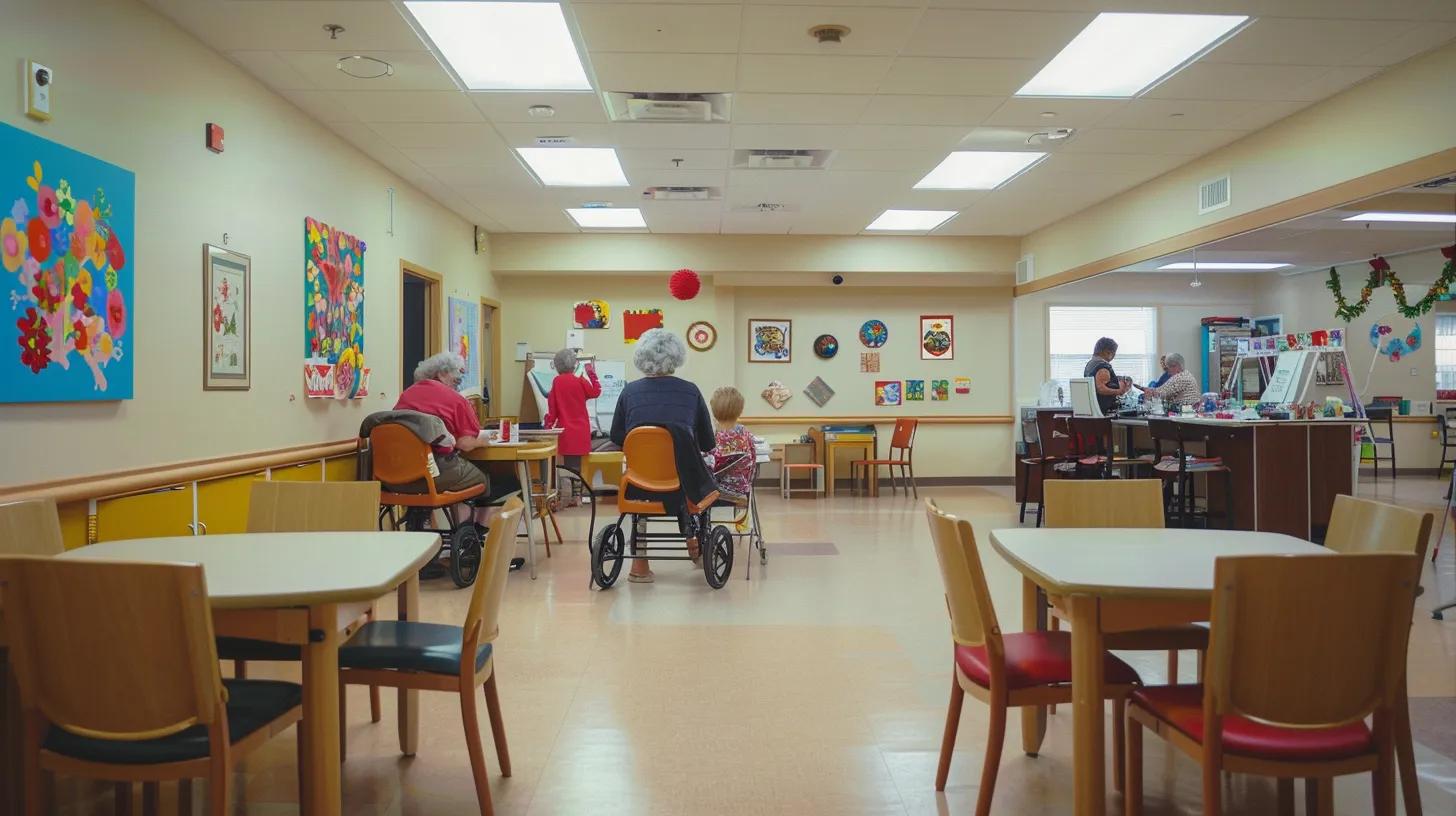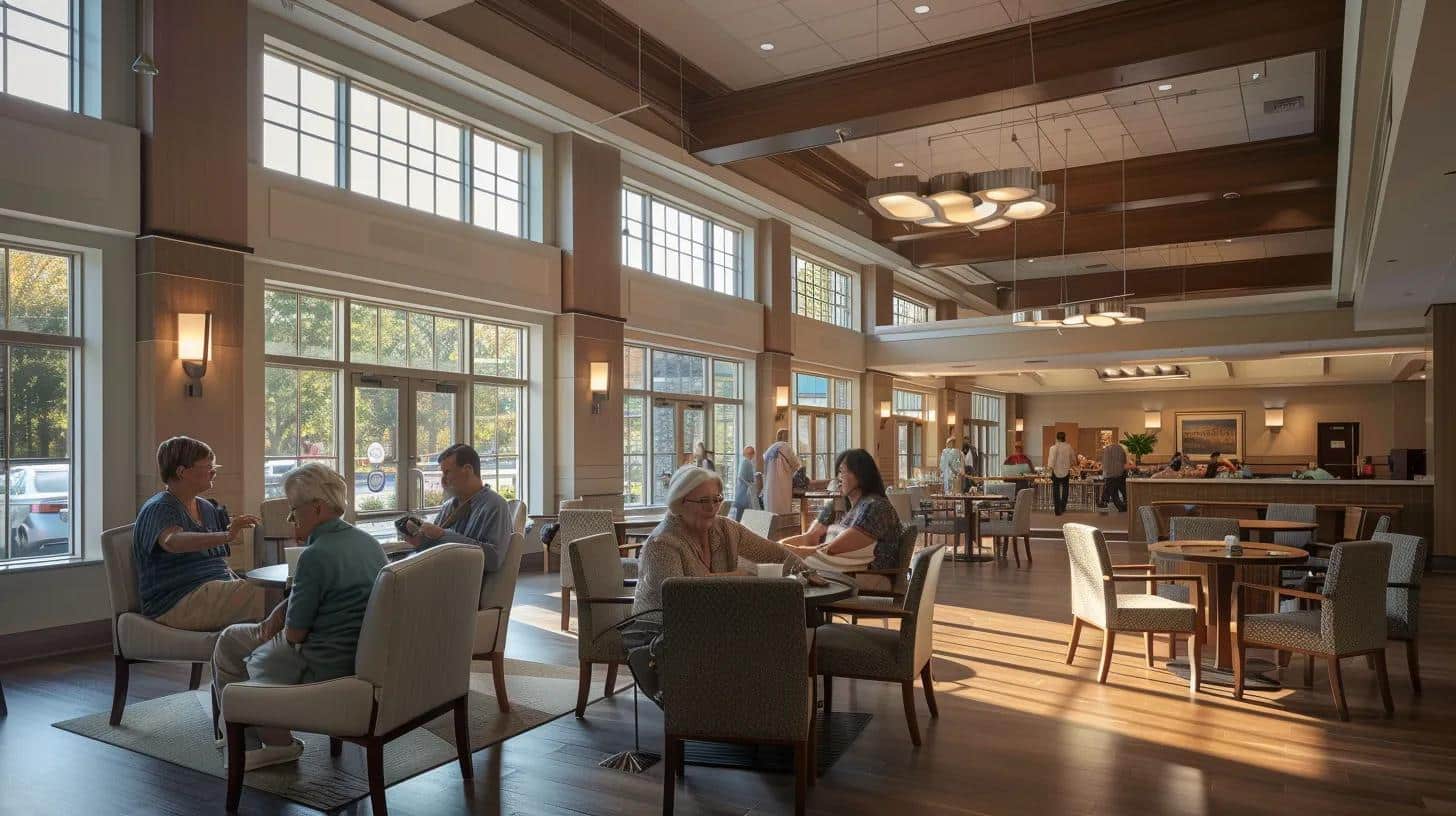Discover the best dementia care facilities Sacramento. Compare options, costs, and support for your loved one. Make an informed choice.

What to Expect From Assisted Living for Dementia Care
What to Expect From Assisted Living for Dementia Care

Person-Centered Dementia Care: Assisted Living at Memory Lane Michigan
Assisted living for dementia offers a safe, nurturing, and home-like environment for seniors with dementia. With rising cases of memory-related diseases, families increasingly look for options that address medical and safety needs while preserving comfort, dignity, and individuality. This article explains what dementia-specific assisted living is, how it differs from other care options, the specialized services provided, the person-centered approach used, common challenges, and guidance on selecting the right facility. Families and healthcare professionals alike find actionable, evidence-based information to support optimal care decisions.
Understanding the evolving needs of individuals with dementia is essential. Memory care facilities not only provide medical supervision but also emphasize cognitive support and social engagement. High caregiver-to-resident ratios ensure that each resident’s condition and personality are respected. Secure, familiar care environments help reduce confusion, stress, and injuries. The sections below outline key components of assisted living for dementia.
Dementia Assisted Living Guide: What’s InsideTable Of Contents:
- Assisted Living for Dementia: Comprehensive Care and Support for Residents and Families
- What Is Assisted Living for Dementia and How Does It Differ From Other Care Options?
- What Specialized Services and Care Are Provided in Assisted Living for Dementia?
- What Person-Centered Approach Improves Assisted Living for Dementia?
- What Are the Benefits of Engaging Activities and Social Interaction in Dementia Assisted Living?
- How to Choose the Right Assisted Living Facility for Dementia Care?
- What Are Common Challenges in Assisted Living for Dementia and How Are They Addressed?
- How Can Families Stay Involved and Support Loved Ones in Dementia Assisted Living?
- Table: Comparison of Key Features in Dementia Assisted Living Facilities
- Frequently Asked Questions
- Final Thoughts
What Is Assisted Living for Dementia and How Does It Differ From Other Care Options?
Assisted living for dementia is a residential care option offering tailored support, supervision, and specialized programs. Its structured environment emphasizes clinical care and social engagement to slow cognitive decline and improve quality of life. Unlike standard assisted living, facilities designed for dementia care incorporate secure settings and specific memory-enhancing activities. This model balances independent living with personalized nursing care.
What Defines Dementia-Specific Assisted Living?
Dementia-specific assisted living focuses on managing behavioral, cognitive, and emotional challenges. Facilities often feature secure settings that minimize triggers for disorientation and anxiety. Specialized programs include cognitive exercises, reminiscence therapy, and sensory stimulation. Environmental modifications such as clear signage, color-coded cues, and simplified layouts help reduce confusion and wandering risk. Staff receive specialized training in effective communication, behavioral intervention, and de-escalation techniques, ensuring residents can maintain familiar routines safely.
How Does Assisted Living Compare to Memory Care and Nursing Homes?
While both memory care facilities and dementia-assisted living provide secure environments and specialized programs, assisted living encourages more independence in a homelike setting. In contrast, nursing homes cater to residents with more acute medical needs and require extensive clinical monitoring. Assisted living for dementia strikes a balance between support and autonomy, promoting active participation in daily activities and social programs while delivering personalized care.
Who Is an Ideal Candidate for Assisted Living With Dementia?
Ideal candidates are individuals in the early to moderate stages of dementia who need structured but flexible support. They may experience memory lapses, executive function difficulties, or behavioral changes that require regular supervision beyond what traditional home care provides. A higher caregiver-to-resident ratio and engagement in social and therapeutic activities often benefit these individuals, ensuring both physical safety and emotional as well as cognitive well-being.
What Specialized Services and Care Are Provided in Assisted Living for Dementia?

Assisted living for dementia combines medical care with therapeutic programs aimed at enhancing cognitive function and emotional well-being while fostering independence. Services include personalized care planning, structured daily routines, diverse therapeutic activities, and comprehensive nutritional programming. Many facilities also employ technology-assisted safety measures—like GPS tracking and automated alerts—to reduce risks such as wandering. This integrated approach differentiates dementia-specific programs from conventional senior care.
How Is 24/7 Supervision and Safety Ensured for Dementia Residents?
Facilities provide continuous care using door alarms, secure outdoor spaces, and monitoring systems that alert caregivers if a resident leaves a designated area. Staff teams are trained to recognize early signs of distress and use de-escalation techniques and first aid. Robust internal protocols and technological tools like wearable health monitors ensure fast emergency responses and constant resident safety.
What Memory Care Programs and Therapeutic Activities Are Offered?
A range of memory care programs helps stimulate cognitive function and maintain emotional stability. These include memory games, puzzles, music therapy, reminiscence sessions, and art therapy. Programs may be group-based or individualized and often feature intergenerational events, animal-assisted therapy, and exercise classes. Such activities help slow cognitive decline and support overall mood and mental alertness.
How Is Medication Management Handled in Dementia Assisted Living?
Medication management is closely monitored by trained registered nurses or nurse practitioners who regularly review residents’ regimens in coordination with healthcare providers. Automated dispensing systems and individualized medication charts reduce errors and promote adherence. Strict documentation and regular audits ensure that medications are administered safely and accurately.
What Nutritional Support and Meal Planning Are Available?
Nutritional support is customized to residents’ dietary needs and restrictions. Registered dietitians design weekly meal plans that emphasize brain health, using fresh, whole foods rich in omega-3 fatty acids, antioxidants, and complex carbohydrates. Adaptive meal services cater to difficulties with chewing or swallowing, while dining areas are designed to be calming and socially engaging.
What Person-Centered Approach Improves Assisted Living for Dementia?
The person-centered approach tailors care to the unique needs, histories, and preferences of each resident. By involving family members in the care planning process, facilities create individualized plans that address both physical and emotional aspects of dementia. This approach respects each resident’s individuality and ensures that treatment decisions are based not just on clinical assessments but also on personal life stories.
What Are Tailored Care Plans and How Are They Developed?
Tailored care plans are customized strategies developed for each resident. Starting with a thorough assessment by nurses, therapists, and social workers—in collaboration with family members—these plans set measurable goals and are continuously updated based on resident feedback and changing needs. Regular reviews ensure that care remains effective, enhancing both independence and social engagement.
How Do Trained and Compassionate Staff Support Residents?
Staff in dementia care receive specialized training in communication, behavioral interventions, and crisis management. Their compassionate, patient approach helps build trusting relationships with residents and families. Caregivers provide essential physical support while also promoting emotional well-being, ensuring that residents feel understood and valued.
How Are Family Members Supported Through the Care Process?
Facilities maintain open communication with families through regular meetings, care plan reviews, and real-time digital updates. Educational workshops, counseling sessions, and support groups are available to help families understand dementia progression and associated challenges. This integrated communication fosters a collaborative environment and alleviates caregiver stress.
What Are the Benefits of Engaging Activities and Social Interaction in Dementia Assisted Living?

Engaging activities and regular social interaction boost mental stimulation, emotional balance, and cognitive function. Custom-tailored programs help reduce isolation and maintain beneficial routines that support both physical and mental health. Integrating therapeutic modalities such as art, music, and movement has been shown to ease behavioral symptoms and enhance overall life satisfaction.
How Do Music and Art Therapy Help Dementia Residents?
Music and art therapy activate brain regions linked to memory and emotion. Music therapy can reduce agitation and elevate mood, while art therapy offers a non-verbal, creative outlet for self-expression. These therapies, personalized to each resident’s history and preferences, improve communication, lower stress levels, and promote a positive outlook.
What Social Programs Promote Cognitive Function and Emotional Well-Being?
Social programs, including group discussions, themed events, and intergenerational activities, create a sense of community and provide emotional support. Regular interaction through storytelling, collaborative games, and light exercises can slow cognitive decline and reduce depression and anxiety. Such structured engagements also strengthen familial bonds and foster a secure community atmosphere.
How Are Activities Adapted for Different Stages of Dementia?
Activities are carefully adjusted to meet residents’ evolving needs. Early-stage programs may include moderately challenging games and discussions, while mid-stage activities are simplified and rhythmic. In advanced stages, activities focus on comfort and emotional reassurance through music, storytelling with old photographs, or tactile engagement with familiar objects. Ongoing reviews allow therapeutic teams to tailor stimulation appropriately at every stage.
How to Choose the Right Assisted Living Facility for Dementia Care?
Selecting a facility requires careful research. Families should evaluate the physical environment, range of services offered, staff qualifications, safety measures, and facility reputation. Visiting multiple facilities, asking detailed questions, and observing resident-caregiver interactions are critical. The ideal facility offers high-quality clinical support combined with transparent pricing, proper licensing, accreditation, and positive testimonials.
What Questions Should Families Ask When Touring Facilities?
Families should ask about staffing ratios, dementia-specific training protocols, emergency procedures, daily schedules, activity programs, and meal preparations. Inquiries should also cover the facility’s methods for handling behavioral challenges, medication tracking, safety protocols, and visitor policies. These questions help gauge the environment’s supportiveness and responsiveness.
How to Evaluate Safety Features and Staff Qualifications?
Prospective families should look for secured entry points, alarm systems, continuous monitoring, and documented staff training in dementia care. Observing staff interactions and reviewing records of training programs and regulatory compliance can provide confidence that the facility maintains high standards of safety and care.
What Are the Costs and Financial Options for Dementia Assisted Living?
Costs vary depending on location, level of care, and amenities. Families should obtain a detailed breakdown of costs—covering accommodation, care services, medication, therapies, and additional programs. Information about bundled rates, Medicaid, Medicare Advantage plans, and long-term care insurance options is also essential for making an informed decision.
How to Understand Licensing and Accreditation for Dementia Care Facilities?
Licensing and accreditation ensure that facilities meet established quality and safety standards. Families should verify that the facility complies with state and federal regulations and holds accreditation from reputable organizations such as the Joint Commission or CARF. Inspecting audit reports, staff credentials, and training records can provide additional assurance of quality care.
What Are Common Challenges in Assisted Living for Dementia and How Are They Addressed?

Assisted living for dementia faces challenges including behavioral issues, wandering, and health emergencies. Facilities must balance a supportive, independent environment with rigorous safety and care protocols. Effective problem management relies on clinical expertise, compassionate caregiving, and the smart use of technology to continuously monitor and adapt care plans.
How Is Behavioral Management Handled in Dementia Residents?
Behavioral management is achieved through individualized strategies that emphasize de-escalation, positive reinforcement, and personalized interventions. Staff use non-pharmacological methods and regularly review interventions with families to reduce agitation, aggression, and confusion, ultimately improving residents’ quality of life.
What Measures Prevent Wandering and Ensure Resident Safety?
To prevent wandering, facilities use environmental design features like secured outdoor areas, sensor-activated doors, and tracking systems. Regular rounds and scheduled activities help minimize disorientation. Technology such as RFID bracelets and GPS devices alerts caregivers immediately if a resident leaves a safe zone.
How Are Health Emergencies and Medical Needs Managed?
Facilities have comprehensive protocols for managing medical emergencies, including on-site staff and agreements with local healthcare providers. Immediate first aid, emergency notifications, and transportation to hospitals are standard. Continuous monitoring through routine assessments and telehealth services ensures that changes in residents’ conditions are promptly addressed.
How Can Families Stay Involved and Support Loved Ones in Dementia Assisted Living?
Family involvement enhances resident well-being by ensuring that care remains personalized. Facilities offer regular care planning sessions, open houses, and digital communication tools so families can stay informed and participate in decision-making throughout the care process.
What Communication Tools Facilitate Family-Staff Collaboration?
Secure digital platforms, video conferencing, care journals, and scheduled in-person meetings keep families informed about daily activities, medication schedules, and health status. These tools ensure continuous feedback and strengthen the partnership between families and caregivers.
How Can Families Participate in Care Planning and Activities?
Families are invited to share insights about residents’ histories, hobbies, and personal goals during care planning sessions. Participation in social events and therapeutic activities further reinforces residents’ sense of identity and belonging, while providing emotional support and promoting intergenerational bonds.
What Resources Are Available for Family Caregiver Support?
Facilities offer resources such as seminars, workshops, counseling services, and support groups to help family caregivers manage the challenges of dementia care. Collaborative efforts with community organizations and online resource centers ensure families receive ongoing support and practical advice.
Table: Comparison of Key Features in Dementia Assisted Living Facilities
Before diving into further details, the table below summarizes key attributes of these facilities, highlighting safety, staffing, specialized programs, and financial transparency.
The table above emphasizes how each feature contributes to a secure and supportive environment that enhances residents’ quality of life.
Frequently Asked Questions
Q: What distinguishes assisted living for dementia from other senior living options? A: Assisted living for dementia targets the needs of individuals with memory impairment by combining personalized care, specialized therapeutic programs, secure environments, and a higher caregiver-to-resident ratio. This model supports both safety and cognitive stimulation.
Q: How do facilities ensure the safety of residents who are prone to wandering? A: Facilities use environmental modifications—such as secure entries and sensor-activated doors—combined with continuous monitoring and advanced tracking technology. Regular staff rounds and wearable devices help prevent wandering.
Q: What kind of training do staff members receive in dementia-assisted living settings? A: Staff undergo specialized training in dementia care encompassing effective communication, behavioral management, emergency response, and person-centered care, allowing them to provide proactive, compassionate, and individualized care.
Q: Are family members encouraged to be involved in the care process? A: Yes, families are integral to the person-centered care model. Facilities invite family participation in care planning sessions, social activities, and provide regular communication updates to incorporate resident history and preferences.
Q: How are nutritional needs managed for residents with dementia? A: Nutritional support is personalized through balanced meal plans created by registered dietitians. Adaptive meal services and efforts to maintain pleasant dining environments ensure residents receive adequate nutrition tailored to their needs.
Q: What steps should families take when selecting a facility for dementia care? A: Families should research facilities, verify licensing and accreditation, and ask detailed questions about safety protocols, staff training, and daily routines. Tours and discussions with current residents can also offer insightful information.
Q: How frequently are care plans reviewed in a dementia-assisted living facility? A: Care plans are typically reviewed every three months or when significant changes in a resident’s condition occur, ensuring care remains aligned with evolving needs.
Final Thoughts
Assisted living for dementia provides a compassionate, specialized care model that addresses the cognitive, emotional, and physical needs of seniors. With services ranging from 24/7 supervision and medication management to customized therapeutic activities and personalized care planning, these facilities create a secure, engaging environment. Transparent communication between families and caregivers further enhances the care process. Ultimately, this approach leads to improved outcomes, enhanced quality of life, and greater well-being for residents facing dementia.


